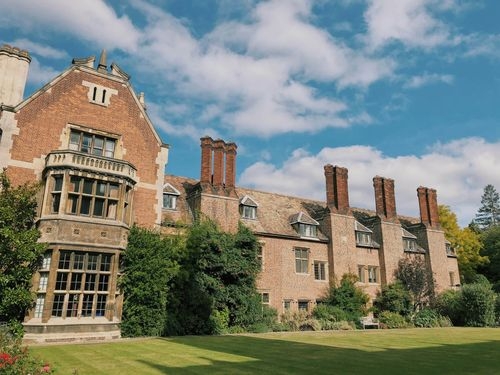Navigating Post-16 Curriculum Choices in the UK: A Levels, IB, and Beyond
For students in the UK, the journey beyond compulsory education at age 16 offers a range of educational pathways, each with its unique characteristics and opportunities. Among these, 'A-levels and the International Baccalaureate (IB) Diploma are the two most prominent curricula. Understanding the differences between these 2 options, as well as the other available options, is important for making an informed decision that aligns with your son or daughter’s academic and career aspirations. Parents can also pay more attention to the differences between the education systems in Hong Kong and the United Kingdom.
'A' Levels: They Offer Specialisation and Depth
The Advanced Level qualifications, commonly known as 'A' Levels, are subject-specific courses that have been a part of the British education system for decades. Students typically choose 3-4 subjects, focusing on areas they are interested in or that are required for their desired university course
There are no compulsory subjects, and larger schools can offer a choice of more than 50 different subjects in any combination. They are studied across two years, which includes the AS year (Year 12) and A2 year (Year 13). Some schools offer the opportunity for students to study a subject for one year to achieve an AS Level, or for two years to complete a full ‘A’ Level.
Students can select A Level subjects that might not have been an option at GCSE, such as psychology, politics, or economics. Also, some schools offer the Extended Project Qualification (EPQ), alongside A Levels. Similar to the IB’s Extended Essay, the EPQ involves choosing a topic, carrying out research, writing a 5,000-word dissertation, and delivering a 10-minute presentation.
Most schools will offer extracurricular activities such as the Duke of Edinburgh's Award, which helps to develop the same skills as the IB’s CAS programme (see below).
Pros:
1. Specialisation: 'A' Levels allow students to specialise early, making them ideal for those who have a clear idea of their future career path or academic interest.
2. Depth of Study: With fewer subjects, students can delve deeper into their chosen fields, fostering a thorough understanding that is often appreciated by universities.
3. Flexibility: The ability to select subjects across different disciplines offers flexibility and caters to a wide range of academic interests and career aspirations.
Cons:
1. Limited Breadth: The focus on a smaller number of subjects means less academic breadth, which might not suit students who prefer a more holistic educational approach.
2. Pressure: The final examinations carry significant weight, which can be stressful and might not suit all learning styles.
‘A’ Levels are Ideal for: Students with strong preferences or aptitudes in specific subjects and those aiming for specialised university courses like Medicine, Engineering, or Law.
International Baccalaureate (IB) Diploma: Holistic Education & Global Perspective
To receive the full award of the IB Diploma (IBDP), students must successfully complete six subjects, three at higher level and three at standard level. Students study two modern languages, a humanities or social science subject, an experimental science, mathematics or computer science, and another subject including the arts. In addition, they complete a two-year course called Theory of Knowledge (TOK), write an Extended Essay, and take part in Creativity, Action, Service (CAS)
Theory Of Knowledge (TOK): an essay of between 1,00 and 1,600 words written on a title (from a choice of 10). This also includes a 10-minute class presentation.
Extended Essay: A research-based project that leads to a 4,000-word essay on a carefully chosen subject.
CAS: (Creativity, Activity, Service): A total of 150 hours of community service over 18 months in any form of creativity, sport, or social service.
Pros:
1. Broad Learning: The IB's holistic approach encourages students to develop a well-rounded knowledge base across various disciplines.
2. International Recognition: With its global perspective, the IB is highly regarded by universities worldwide, making it an excellent option for students considering studying abroad.
3. Development of Core Skills: The IB's core components emphasize critical thinking, research, and community engagement, skills highly valued in higher education and beyond.
Cons:
1. Workload: The IB Diploma is often perceived as more demanding due to its breadth of subjects and additional core requirements.
2. Less Specialisation: The broader approach might be less appealing to students who have already identified a specific area of interest or career path.
Ideal for: Students seeking a well-rounded education, those who enjoy a challenging and diverse curriculum, and those who are not yet certain of their specialised academic or career path.
Other Curriculum Options for 16+ Students in the UK
1. BTEC (Business and Technology Education Council) Qualifications: These are vocational qualifications geared towards specific careers like business, engineering, and health sciences. BTECs are often more practical and hands-on, ideal for students who prefer learning in a more applied setting.
2. T-Levels: Introduced quite recently, T-Levels are technical qualifications that combine classroom learning and industry placements. They are a good option for students looking to enter skilled professions directly. These are not typically offered in UK independent schools but are offered in some of the country’s state schools.
Preparing for University: Which Route Is Best?
Both 'A' Levels and the IB Diploma are effective in preparing students for university, but in different ways. 'A' Levels offer depth in specific subjects, which is beneficial for university courses that require strong foundational knowledge in those areas. The IB's comprehensive approach, on the other hand, develops a wide range of skills, including critical thinking and adaptability, which are invaluable in higher education settings, regardless of the specific field of study.
Some Helpful Questions to Consider When Supporting Your Son or Daughter in This Decision:
These questions are designed not only to aid in making an informed decision but also to encourage a deeper understanding of your son or daughter’s aspirations, strengths, and educational needs.
1. What are my child's academic strengths and preferences?
- Does your child excel in specific subjects or show a strong interest in particular areas that align better with the 'A' Level's specialisation or the IB's breadth?
2. How does my child handle academic pressure and workload?
- Evaluate whether your son or daughter thrives under a rigorous, broad curriculum like the IB or prefers the focused intensity of 'A' Levels.
3. What are my child’s career aspirations or further study plans?
- Does your child have a clear career path that requires specific subjects (favouring 'A' Levels) or are they exploring a range of interests (which might align with the IB)?
4. How important is global recognition for my child’s future academic and career plans?
- Given the IB's international reputation, consider if this aligns better with potential plans for studying abroad or international career opportunities.
5. Does my child show a preference for a more holistic educational approach?
- Reflect on whether your child values an education that encompasses not just academic learning but also personal development, as emphasised in the IB.
6. How does my child engage with extracurricular activities and community service?
- With the IB's focus on Creativity, Activity, Service (CAS), assess if this aspect will motivate your son or daughter, or if they would prefer the more academically focused 'A' Level route.
7. What learning environment does my child thrive in?
- Consider your child’s learning style and which curriculum (the more structured 'A' Levels vs. the more inquiry-based IB) aligns better with it.
8. How well does my child manage time and balance various commitments?
- Given the demanding nature of the IB, including its extended essay and Theory of Knowledge components, evaluate your child's time management skills and ability to balance a varied workload.
9. What are my child’s views on internationalism and cultural awareness?
- With the IB's strong emphasis on global perspectives, consider whether this aligns with your child’s interests and values.
10. How do we, as a family, value the importance of academic specialisation versus a broad education?
- Reflect on your family's educational values and how they align with each curriculum's philosophy.
Conclusion
Choosing the right post-16 curriculum in the UK is a pivotal decision that can shape your child’s academic and professional trajectory. 'A' Levels offer depth and specialisation, while the IB provides a holistic education with a global perspective. Other options like BTEC and T-Levels cater to a variety of learning styles and career aspirations. Ultimately, the best choice depends on the individual student's interests, strengths, and future goals.
At Academic Asia we have vast experience with both curricula and can offer advice to your family about UK academic programmes that will suit your son or daughter’s learning style, their strengths, and importantly, their desired career trajectory. Kindly contact us for the consultation services.
Editors

